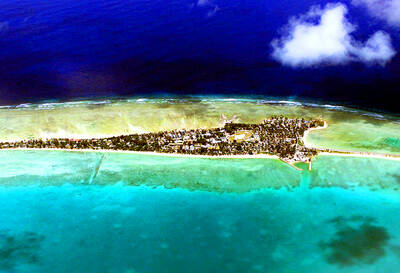A judge signaled on Tuesday that he would order the release in the coming months of much of the secret testimony in the notorious espionage case against Julius and Ethel Rosenberg.
But US District Judge Alvin Hellerstein said he would make an exception for a pivotal witness whose questionable testimony helped send Ethel Rosenberg to the electric chair: her 86-year-old brother.
The decision on the brother, David Greenglass, came at a Manhattan hearing at which leading historical groups argued that the biggest spy case of the Cold War era was important enough to qualify for a rare exception to secrecy rules protecting grand jury testimony.
Prosecutors had already consented to the unsealing of transcripts for 36 of the 46 grand jury witnesses’ testimonies that were requested by historians. Since the 36 witnesses are dead or gave permission for the disclosure, the judge didn’t bother to address those transcripts on Tuesday and was expected to formalize their release yesterday in a written order.
But in the case of three living witnesses who objected — Greenglass and two lesser figures — the judge said he agreed with the government’s stance that their privacy “overrides the public’s need to know.”
He cited letters to the court from an attorney for Greenglass saying the case still haunts his family.
Greenglass and his wife, Ruth Greenglass, after confessing to being part of a scheme to smuggle atomic secrets to the Soviets, agreed to testify against the Rosenbergs. During the 1951 trial, the couple linked Ethel Rosenberg to the plot by saying they saw her transcribing the stolen research data on a typewriter.
By cooperating, David Greenglass, a wartime machinist in Los Alamos, New Mexico, was spared a possible death sentence and served 10 years in prison. Ruth Greenglass, who died this year, was never charged.
The Rosenbergs were executed in 1953.
Since then, decoded Soviet cables have seemed to confirm that Julius Rosenberg was a spy, but doubts have remained about Ethel Rosenberg’s involvement.
Georgetown University law professor David Vladeck, who represented the historical groups, argued on Tuesday that David Greenglass forfeited his right to keep his testimony secret by “thrusting himself” into the limelight with media interviews in recent years. In the interviews, Greenglass said he made up the trial account about the typewriter to protect his wife and she may have improvised the tale to appease prosecutors.
“If indeed the government was a party to that, then the public needs to know,” Vladeck said.
The judge responded that Greenglass “may be a hypocrite. He may be a liar. ... But does that cause me to release grand jury testimony?”
Afterward, Vladeck still called the judge’s position on the other witnesses “very good news” and predicted that the transcripts would be made public in the fall.
The judge reserved decision regarding the testimony of seven missing Rosenberg witnesses pending further efforts to confirm that they are either dead or will never be located.

DISASTER: The Bangladesh Meteorological Department recorded a magnitude 5.7 and tremors reached as far as Kolkata, India, more than 300km away from the epicenter A powerful earthquake struck Bangladesh yesterday outside the crowded capital, Dhaka, killing at least five people and injuring about a hundred, the government said. The magnitude 5.5 quake struck at 10:38am near Narsingdi, Bangladesh, about 33km from Dhaka, the US Geological Survey (USGS) said. The earthquake sparked fear and chaos with many in the Muslim-majority nation of 170 million people at home on their day off. AFP reporters in Dhaka said they saw people weeping in the streets while others appeared shocked. Bangladesh Interim Leader Muhammad Yunus expressed his “deep shock and sorrow over the news of casualties in various districts.” At least five people,

ON THE LAM: The Brazilian Supreme Court said that the former president tried to burn his ankle monitor off as part of an attempt to orchestrate his escape from Brazil Former Brazilian president Jair Bolsonaro — under house arrest while he appeals a conviction for a foiled coup attempt — was taken into custody on Saturday after the Brazilian Supreme Court deemed him a high flight risk. The court said the far-right firebrand — who was sentenced to 27 years in prison over a scheme to stop Brazilian President Luiz Inacio Lula da Silva from taking office after the 2022 elections — had attempted to disable his ankle monitor to flee. Supreme Court judge Alexandre de Moraes said Bolsonaro’s detention was a preventive measure as final appeals play out. In a video made

It is one of the world’s most famous unsolved codes whose answer could sell for a fortune — but two US friends say they have already found the secret hidden by Kryptos. The S-shaped copper sculpture has baffled cryptography enthusiasts since its 1990 installation on the grounds of the CIA headquarters in Virginia, with three of its four messages deciphered so far. Yet K4, the final passage, has kept codebreakers scratching their heads. Sculptor Jim Sanborn, 80, has been so overwhelmed by guesses that he started charging US$50 for each response. Sanborn in August announced he would auction the 97-character solution to K4

SHOW OF FORCE: The US has held nine multilateral drills near Guam in the past four months, which Australia said was important to deter coercion in the region Five Chinese research vessels, including ships used for space and missile tracking and underwater mapping, were active in the northwest Pacific last month, as the US stepped up military exercises, data compiled by a Guam-based group shows. Rapid militarization in the northern Pacific gets insufficient attention, the Pacific Center for Island Security said, adding that it makes island populations a potential target in any great-power conflict. “If you look at the number of US and bilateral and multilateral exercises, there is a lot of activity,” Leland Bettis, the director of the group that seeks to flag regional security risks, said in an